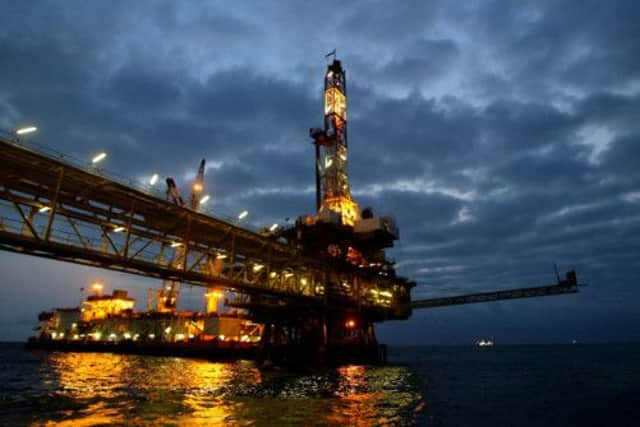Scottish independence: Oil predictions ‘too low’


Professor Alex Kemp, oil economist at Aberdeen University, said new figures compiled by the Department for Energy and Climate Change (DECC) on future production in the North Sea had undershot his own predictions.
Data published last week by the Office of Budget Responsibility (OBR) suggested a further ten billion barrels were likely to be extracted in the North Sea from now until 2040. But speaking as the Scottish Government prepared to publish a paper on North Sea oil today, Prof Kemp said there were still up to 16 billion barrels remaining.
Advertisement
Hide AdAdvertisement
Hide Ad“They are saying that from now until 2040, we are only going to produce another ten billion barrels, which is very low,” he said. “That would be pretty disappointing.
“Our own modelling takes a 30-year view up to 2042 and we could have 15 to 16 billion barrels,” he said.
The pro-independence campaign aims to convince voters there is enough remaining oil to support an independent Scotland in the medium term. More than 40 billion barrels has already been extracted from UK waters, and oil production is expected to enter a decline from the end of this decade.
However, SNP ministers will use today’s paper to argue that oil revenue, stretching for the next few decades, can still act as an economic “bonus”.
First Minister Alex Salmond is also expected to attack DECC’s own estimates, having accused UK government departments of telling “fibs” over the expected reserves in the North Sea.
But UK government figures last night pointed to other independent analysis showing that, even on high estimates, North Sea oil revenues would fall way short of the sums hauled in during the oil boom of the 1980s.
The row over the amount of oil still to be extracted comes after the OBR last week sharply revised down its estimates on future revenues, saying tax income between 2017-18 and 2040-41 would be £56bn, compared to its previous estimate of £67bn.
The OBR said it was “confident” oil and gas receipts were on a “declining trend”, saying by 2040, oil would account for just 0.03 per cent of UK GDP. The OBR estimated that potentially another ten billion barrels of oil could be extracted between now and 2040, taking the current total of 40 billion to 50 billion barrels by then. The figures were based on estimates supplied by DECC, based on a decline of 5 per cent a year after 2018.
Advertisement
Hide AdAdvertisement
Hide AdProf Kemp’s own detailed modelling agrees that, after a short increase in production in the next few years, there will be a long-term decline over the coming decades.
But his model still found that, over the next 30 years, cumulative production could amount to 13.5 billion barrels under a “medium price” scenario, or up to 16.8 billion under a “higher price scenario”.
On the oil revenues figures, a spokesman for the UK government last night said: “Since UK oil and gas production peaked at the turn of the century, official forecasts have consistently overestimated production, demonstrating the importance of applying caution in revenue forecasts. All OBR forecasts are produced independently of ministers, supporting the credibility of official economic and fiscal forecasts.”